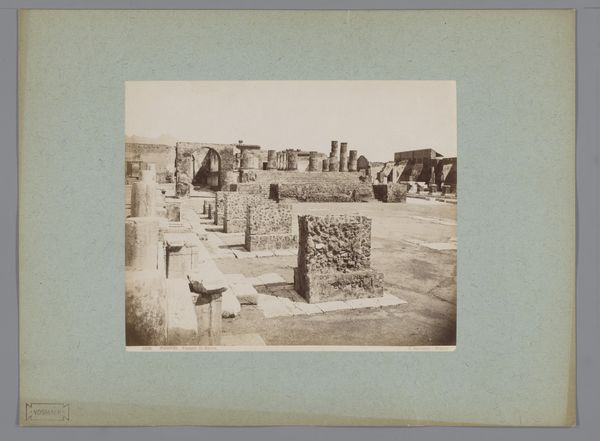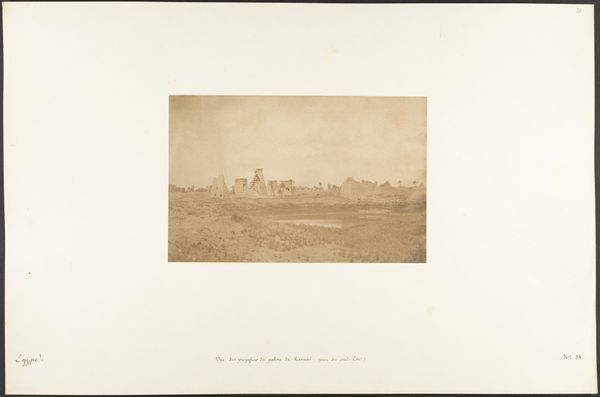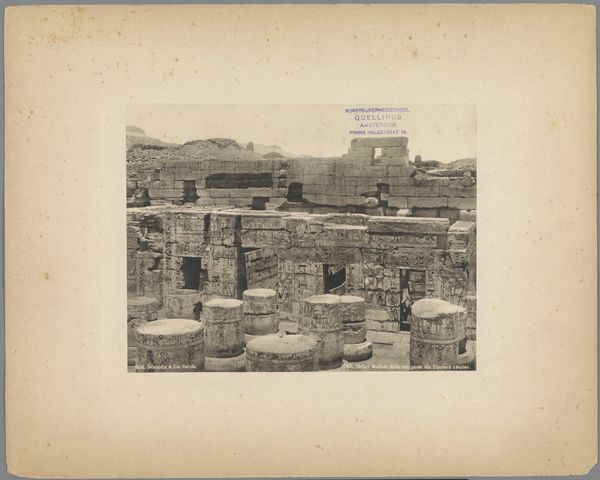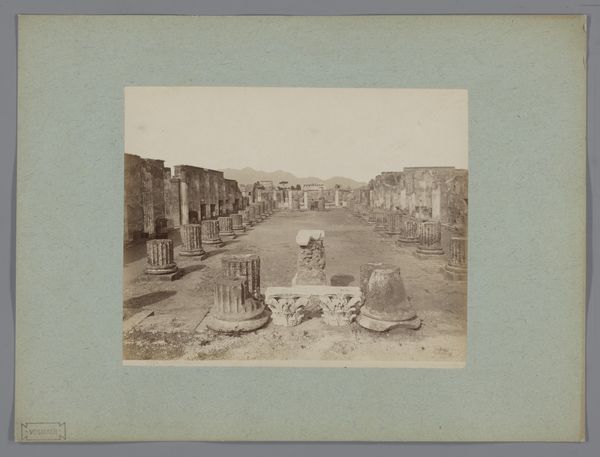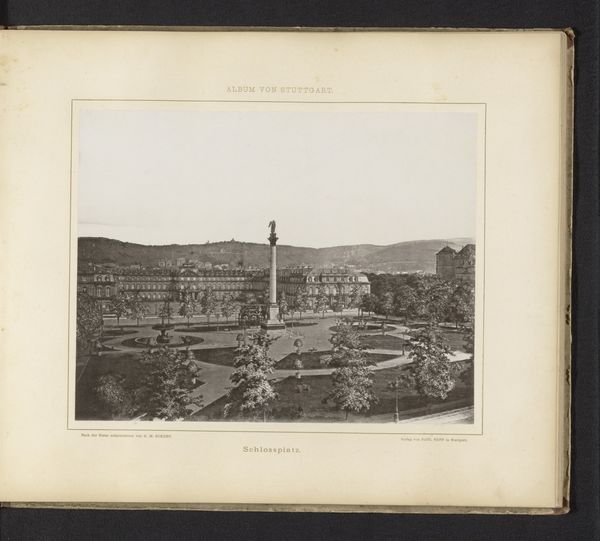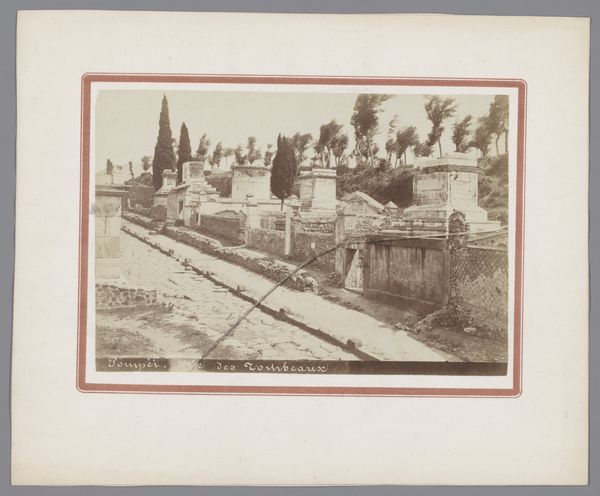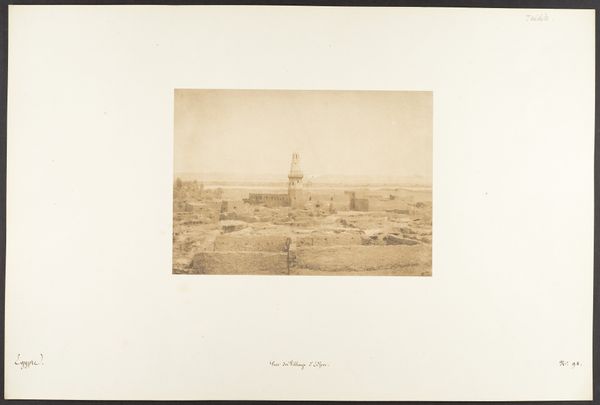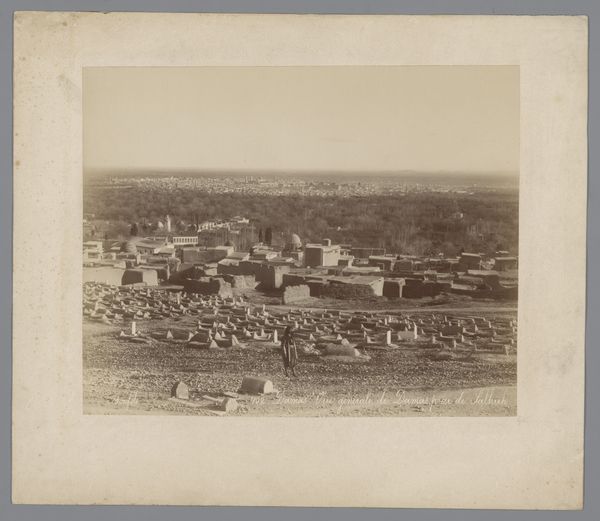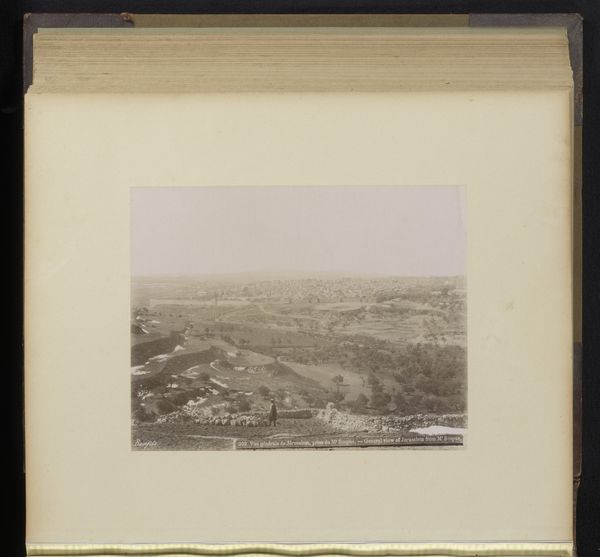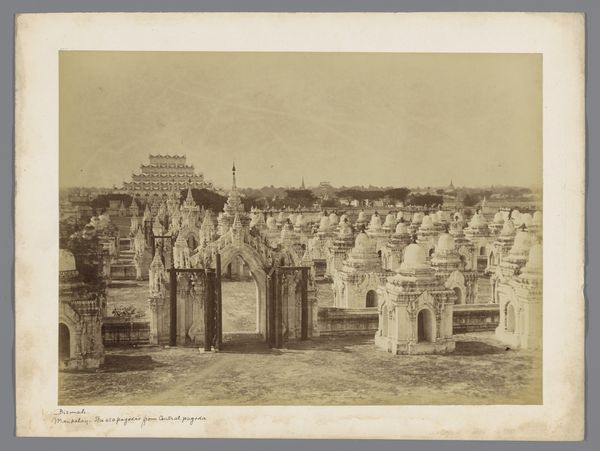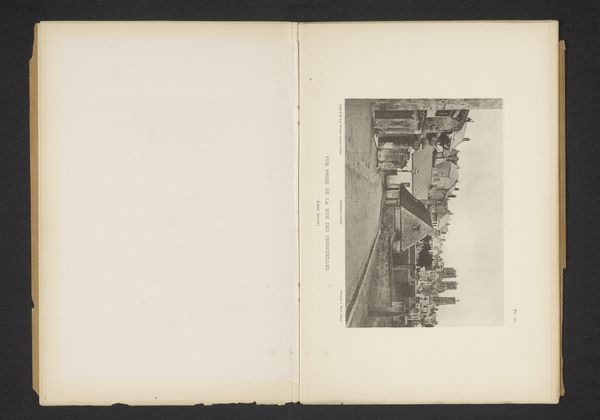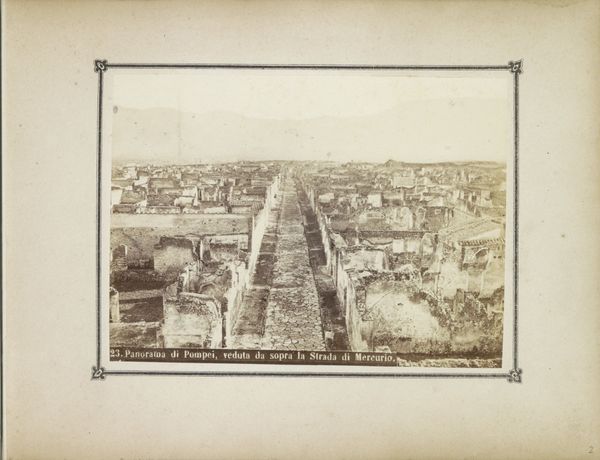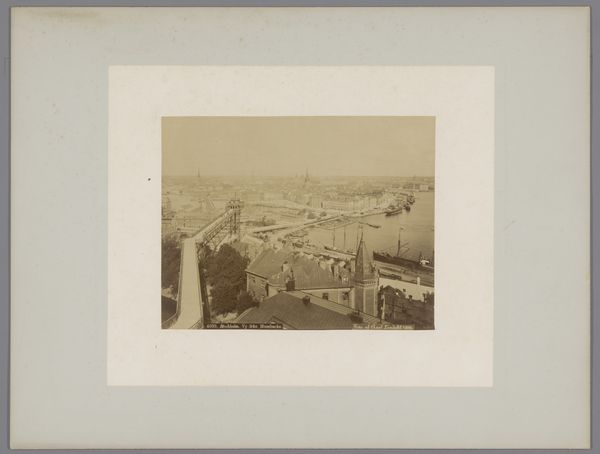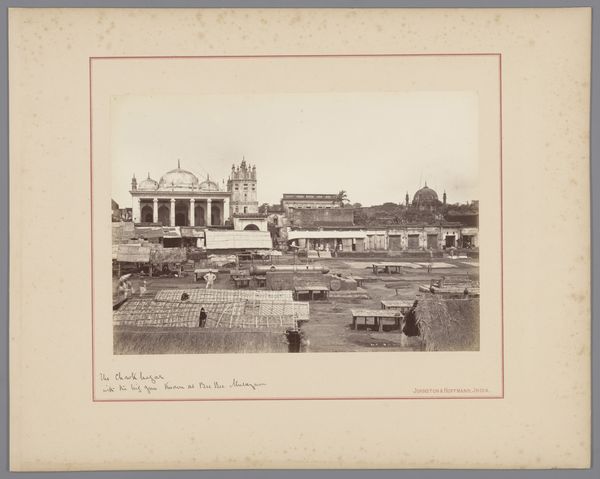
#
photo of handprinted image
#
aged paper
#
pale palette
#
pastel soft colours
#
muted colour palette
#
ink paper printed
#
light coloured
#
white palette
#
soft colour palette
#
watercolor
Dimensions: height 58 mm, width 94 mm, height 138 mm, width 187 mm
Copyright: Rijks Museum: Open Domain
Editor: We’re looking at "Gezicht op de Via di Mercurio te Pompeï," created sometime between 1857 and 1900 by Giorgio Sommer. It's a photograph, and the aged paper gives it a really muted, almost ghostly quality. What do you see in its composition? Curator: I observe primarily the geometry and tonality. Note how the central axis created by the Via di Mercurio relentlessly guides the viewer’s eye deep into the image. The tonal range, while restrained, articulates a subtle interplay of light and shadow, defining the volumes of the ruins. Observe the balance achieved through the careful distribution of forms. Editor: It does feel very deliberately arranged. Is the intention to document the ruins accurately or is something else happening here? Curator: Consider the artist’s selection of vantage point and framing. It is less about faithful replication and more about constructing a pictorial space with internal coherence. The receding lines, for instance, create a potent sense of depth. Ask yourself, how does this perspectival manipulation contribute to the image's overall impact? Editor: So you're saying the focus is less on historical context and more on how the image is put together? Curator: Precisely. Disregard any sentimentality regarding ruins or history, which could be said of any place that is decaying; and see it as a calculated exercise in form, light, and spatial relationships. This compositional arrangement—how does it strike you? Editor: I think I was initially drawn to the subject matter but seeing it this way has made me appreciate the careful structuring of the photograph. It almost abstracts the ruins. Curator: Indeed. This piece highlights how an artwork’s strength resides within its formal properties and considered aesthetic choices. Editor: It gives me a completely different perspective. Thanks!
Comments
No comments
Be the first to comment and join the conversation on the ultimate creative platform.
